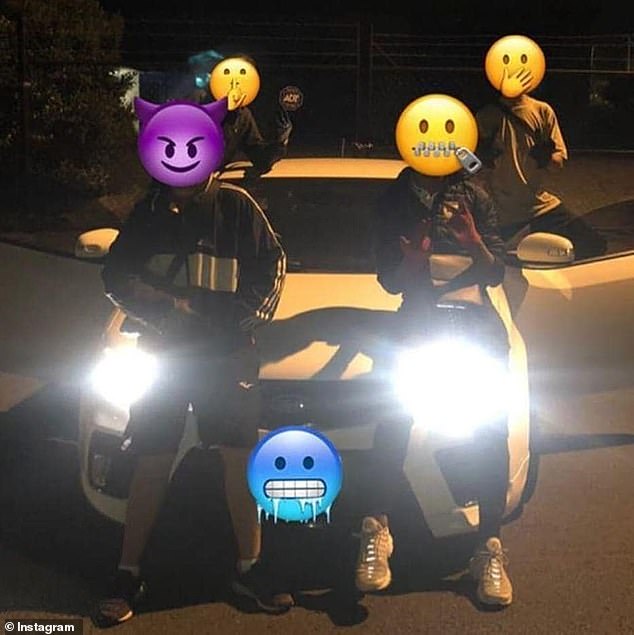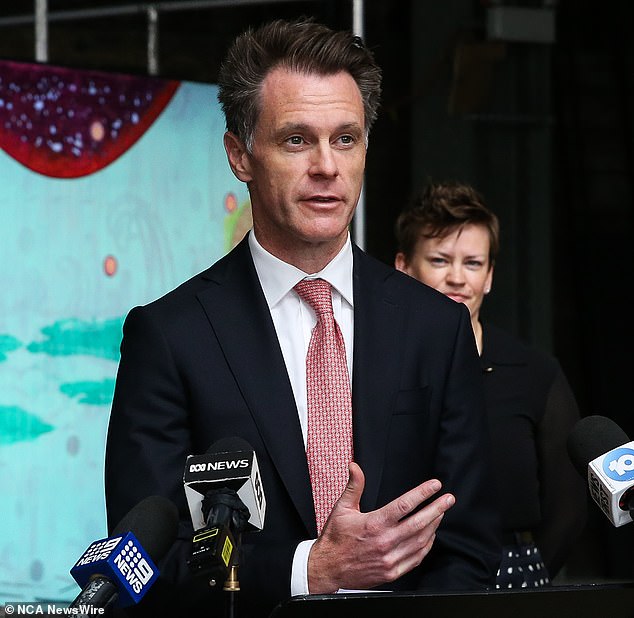<!–
<!–
<!– <!–
<!–
<!–
<!–
Writing and bragging about car thefts or burglaries will become a crime in NSW as the state rolls out a series of changes aimed at young offenders.
Bail laws will also be strengthened to include a temporary, extra bail test for older children charged with certain serious offenses while they are already before the courts for similar allegations.
The proposed law change will mean the police and judiciary will have to have a ‘high degree of confidence’ that young people aged between 14 and 18 will not commit further serious burglary or car theft while on bail. the government said on Tuesday.
A 12-month sunset clause will apply to the bail review to allow the changes to be reviewed.

New South Wales to ban sharing photos of crimes (like above) in bid to crack down on young offenders


A new offense will be created for the act of “posting and bragging” about crimes (pictured, young offenders pose for an online photo)
A new offense will be created for the act of “posting and boasting”, adding an extra sentence of two years for anyone who steals a vehicle or commits a burglary and also shares material to advertise the crime.
The so-called ‘performance crime’ could encourage others – particularly young people – to commit similar acts, the government said.
Premier Chris Minns said mayors, police and members of the public had called for more to be done to tackle crime, particularly in regional areas.
“We know there’s no easy fix, but the reforms we’re announcing today look at the big picture at a whole-of-society level to really step in and help prevent crime and give young people a chance in life ,” he said.
A separate pilot program will run in the northern NSW town of Moree, where $13.4 million will be spent on provisions such as extra legal remedies, the Aboriginal Legal Service and a bail accommodation and support service for young people.


Premier Chris Minns (pictured) said the decision followed calls from mayors, police and members of the public to tackle crime
A further $12.9 million will be spent on state-wide regional crime measures, including expanding youth action meetings and Aboriginal youth patrols in more locations.
Crime rates in regional parts of NSW are generally higher than in the state’s cities.
The Country Mayors Association of NSW has complained that residents in regional and rural areas were more likely to be sexually assaulted, have their cars stolen or their homes broken into than their urban counterparts.

